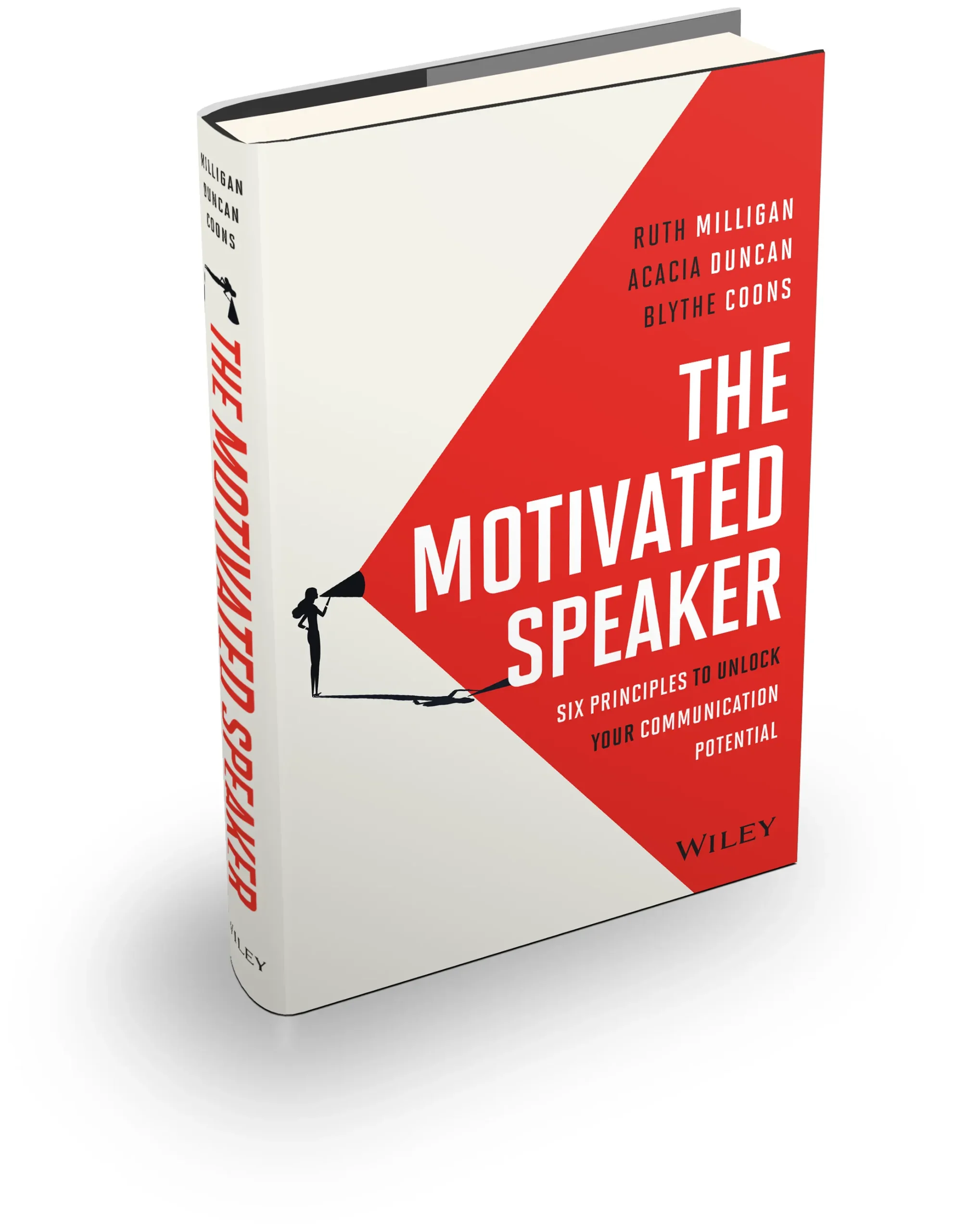AI apps for speaking can help you practice and offer basic feedback, but they often miss the mark on nuance. For those big moments, real coaching is your secret weapon to ensure you shine!
*******
This whole AI craze is getting pretty real, isn’t it? And we’re just as curious as the next person about how best to use AI to make our lives better, easier, and improve what we do.
Not surprisingly, there are a ton of apps purporting to help you with your speech clarity, and promising to make you a better speaker.
We had six apps tested by a university instructor and team of students to help guide our thinking.
Initially, we were going to rank them, but it’s pretty subjective, and we’re not TechCrunch or The Verge. You might be looking for an app that is going to focus specifically on your filler words. Or you might want an app that indicates that you are varying your intonation. As a result, we don’t want to tell you what you should use, but we do want to offer you some guidance on when and how you might best use them.
Strengths and Weaknesses of AI Apps for Speech
In our research, we’ve identified some strengths and weaknesses of these apps.
So what do they do well?
They allow you to practice.
Sometimes that’s all you need–time and space to get in reps. Most of these apps even give you exercises that you can use to practice in a no-stakes environment. And that can make a difference! Especially if you’re not getting opportunities for that at work or in other areas of your life.
The exercises range from massaging your jaw to articulating specific words to improve clarity, to creating an impromptu speech based around an image it provides. There are videos of professionals leading the exercises, and others are written descriptions of exercises, so the amount of input you receive to do the exercise well varies.
They are a great source of feedback.
Some of them can tell you how many times you say “um.” Some of them can measure pitch and volume. Some of them can measure speed of speech and clarity. Some of them can tell you if you sound “masculine” or “feminine” (I’m still not really sure what this means).
It depends on what kind of feedback you as a speaker are looking for. You have to remember that when you’re seeking feedback, it should be aligned with your goals. If you’re looking to knock out those “ums” from your speaking, a few of these apps can help you do that. But if you’re preparing for a big communication, one in which you are trying to compel people to do something, the feedback you get from these apps might not be helpful for you.
Keep in mind that when you get third party feedback, regardless of whether it comes from a tool or a human, it is most useful when
- It’s aligned with your goals as a speaker
- It’s aligned with the perspective of your audience
- It comes at the right time in the process and in the right format
What don’t they do well?
They can be a bad source of feedback.
I hate to break it to you, but AI isn’t really thinking about high-level feedback yet.
Overall, these apps don’t allow for input into the type of communication you’re making or what might be necessary for that specific type. As a result, you’ll get feedback from these apps, but you will have to filter it to know what is useful for you based on what you’re trying to accomplish.
In our minds, the danger is that you receive feedback and it doesn’t tell you what to do about it. Or you don’t know how to interpret it. Either one is going to leave you feeling stuck. Okay, I know I have this bad habit, but what do I do now?
In this case, we encourage you to ask a human. Get a second opinion. Get confirmation that they are hearing the same thing that the app is telling you about. Ideally, that human is part of your intended audience and has the specificity of giving you feedback from that perspective.
They don’t consider nuance.
What we truly notice about these apps is that they don’t understand or read nuance very well. For instance, if a communication moment, like a meaningful story or a call to action, requires you to change your pace or your volume, these tools will likely flag the change as a negative. I’ve run into this myself in the Microsoft Teams speaker coach–it’s always telling me to slow down right as I’m getting excited about something in a call.
Some of these apps assign scores to your ability without giving specific reasoning behind the scores. Arbitrary scoring and unclear criteria don’t really help you learn. Often the onus is on the user to interpret the data you’re receiving. But if you’re seeking information, instruction, or guidance on how to improve, these tools may leave you wanting more.
Something else to keep in mind–when to use the tools. I’m not talking about what time of day (although one app does ask you what time of day you prefer to practice).
Think about using an app when you don’t have something important coming up, when you’re curious or you’re working on development. If you lean on them in the stressful time before you deliver a communication, they could potentially add to your stress or derail your preparation. Consider your motivation to use these tools. Are you motivated to try it when you don’t have an important communication on the horizon?
The bottom line? Proceed with optimistic caution. They may help you practice, but they won’t solve anything for you. If you do use the tools, and discover a bunch of disfluencies or challenges that you don’t know how to address, call us. AI tools are a great way to start, but call in the professionals when something important is on the line.
Beyond AI: Transform Your Speaking Skills with Real-World Expertise
Want to go beyond what AI can offer? Contact Articulation for executive communication coaching tailored to your team’s goals. We’re here to help you prepare for your most important talks with personalized guidance and real-world expertise—so you can communicate with clarity and impact when it counts most.


